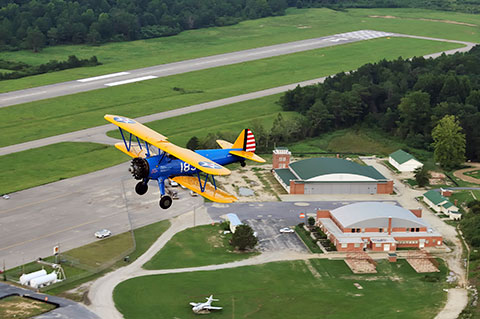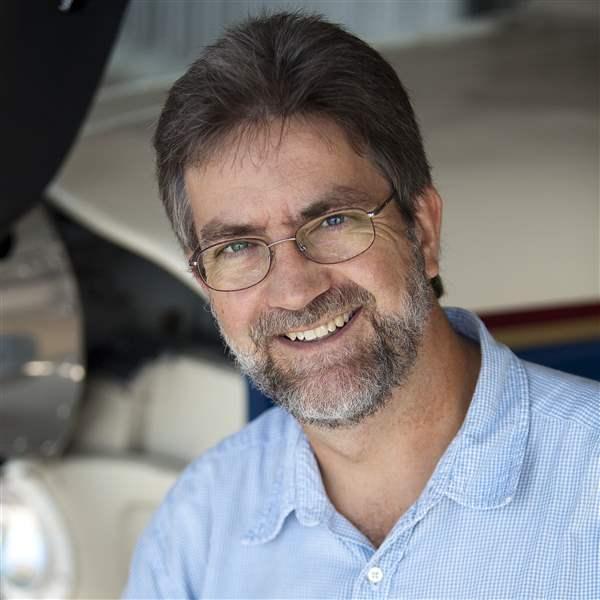
Photography by the author
The next time you're in east-central Alabama, between Montgomery and Auburn, take a few minutes to immerse yourself in the history of the Tuskegee Airmen, black pilots who during World War II received their primary flight training at what is now Moton Field Municipal Airport (06A) in Tuskegee. Their training was considered an “experiment,” because military leaders at the time didn’t believe they could learn to fly and fight. These men went on to prove themselves in combat as the military’s first black pilots, and after the war, they were largely responsible for the desegregation of the Air Force—the first branch of the military to desegregate.
What you’ll see
- Hangar 1, used for aircraft maintenance and parachute rigging, has been restored to its WWII appearance.
- A PT–17 Stearman, Piper J–3 Cub, and Link trainer are on display.
- Immersive audio gives the feel of an active shop.
- Cutaway of a Stearman wing shows aircraft construction of the day.
- Don’t miss exhibits in the offices and rooms surrounding the hangar.
After initial training in Piper Cubs at Kennedy Field, cadets came to Moton Field for 60 hours of primary instruction in Stearman biplanes ( see “Honoring the Tuskegee Airmen,”). Then they moved to Tuskegee Army Airfield northwest of Tuskegee for basic and advanced training.
The Tuskegee Airmen National Historic Site is a compact facility with a rich array of exhibits. Its Hangar 1 Museum is open from 9 a.m. to 4:30 p.m. daily except Thanksgiving, Christmas, and New Year’s Day. Taxi to Golden Eagle Aviation—they’ll take good care of you—and walk to the site. If you’re driving on I-85—the Tuskegee Airmen Memorial Highway—it’s a short distance from the Alabama Route 81 exit. Regardless of how you arrive, you’ll be glad you made the trip.



